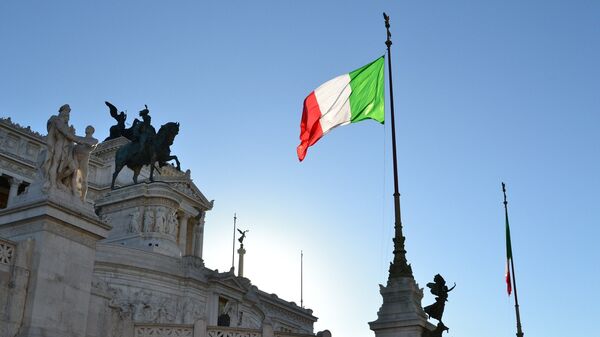Sputnik discussed the possibility of sanctions against Italy with Yannis Koutsomitis, political and economic analyst, based in Belgium.
READ MORE: Italy's Prime Minister Declines Changing 2019 Budget Plan
Sputnik: What do you make of the EU intentions to sanction Italy, a member of the bloc? What are the odds that it will come to this eventually?
Yannis Koutsomitis: We should keep in mind the budget rules for the European Union have been agreed in detail during the years of the financial crisis and are considered almost sacred for the survival of the economic and monetary union of Europe. The intention of the Italian government to deviate from these rules has caused much frustration among European governments and officials. It was somehow expected that the European Commission would call Italy the breacher of this agreement. The question arising is to what extent is the punishment of the Italian government expected in the next months? My take is that it is not very possible, it is not very likely, that the punishment will happen before the European election in June, because, as the rules of the Stability and Growth Pact are, the European Council or finance ministers will call for Italy to correct its budget and will give it a possible four to six month time frame in order to do so. So, it's not automatic that the punishment for Italy will happen in the next one month or so. There's still room for Italy to find other ways in the meantime to change its budget targets and come to an agreement with the European Union.
Sputnik: What can you say about the interpretations of the budget? Who makes the decisions when Italy says "we're in conformity; we're under three per cent"?
Yannis Koutsomitis: It's a technical but at the same time very political question. On the technical side, the three per cent threshold is there, but only if a country is already lowering its debt with a prospect of lowering in the next decade or so. The Italian debt is rising and that is one of the main arguments of the European Commission applying to Italy saying that "three per cent may be a threshold but your debt is rising and you need to lower it down," whereas the Italian government says "look, our growth is very low; we need to enhance the economy with more extensive fiscal expansion in order for people to have more income and to make the economy grow again." There's still dispute among economists whereas the proposals of the Italian government would actually help the Italian economy grow. And this is a real political question right now. It's not just obeying the rules of the European Union or not, it's whether the fiscal expansion in Italy would be in the benefit of its economy. I think that this is also on the political agenda of the two governing parties in Italy that were promising to their voters before the elections that there would be a mass fiscal expansion in Italy; so they need to somehow keep their promises to their electorate. This is how the situation has developed.
Sputnik: What's your assessment of the plan that Italy has actually put forward? What were the biggest problems with it? Perhaps, there need to be some adjustments made to it?
Yannis Koutsomitis: I think that the weal side of the Italian government's argument is that they are not putting forward a package of economic reforms for the fiscal expansion that would enable the Italian economy to modernize, to be more open, to have less state control effects on the economy, and to make the fiscal expansion be able to be more fruitful and productive for the growth. That is the weak side of the Italian government because they want to expand our deficit but they're not doing enough on the reform side.
READ MORE: Italy Interested in Projects to Deliver Russian Gas to Europe — Lavrov
Sputnik: Do you think that we're actually seeing Italy drifting away from the bloc in terms of the current disagreements over the budget and the migration issue?
Yannis Koutsomitis: It is the possibility, but it is diminishing. Although the EU will start this process, I think there're strong elements within the Italian political system that would eventually keep it within the European Union; but Italy needs to have some token for their "revolt" that they've come up with in the recent months. It's the matter of how the negotiations between the Italian government, the officials, the technocrats and the rest of the European Union are willing to come to terms with Italy; and also if the Italian politicians see the room to up the end toward the European Union, because we should not forget that Mr. Salvini himself has said that every morning when he wakes up, he looks at the levels of the Italian bonds, and at how aggressive the markets are towards Italy. If the markets aren't very aggressive towards Italy, I think that they will maintain their positions; but in the end I think that there will be some kind of solution with Italy. I don't see it exiting the EU, at least in the foreseeable future.
The views and opinions expressed by the speaker do not necessarily reflect those of Sputnik.

